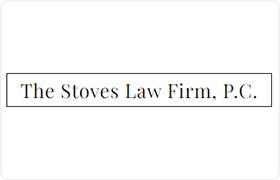Laceys Spring Juvenile Law Lawyer, Alabama
Sponsored Law Firm
-
 x
x

Click For More Info:
-
The Stoves Law Firm, P.C.
9 Office Park Cir Suite 105 Birmingham, AL 35223» view mapCriminal Defense Legal Expertise You Can Rely On
The Stoves Law Firm, P.C. provides outstanding Criminal Defense and Litigation services to individuals and businesses throughout the State of Alabama.
800-818-9390
John Robert Allen
Juvenile Law, Other, State Appellate Practice, Criminal
Status: In Good Standing Licensed: 42 Years
Elissa H. Green
Military, Traffic, Family Law, Juvenile Law
Status: In Good Standing Licensed: 36 Years
 Jay Stoves Birmingham, AL
Jay Stoves Birmingham, AL Practice AreasExpertise
Practice AreasExpertise
